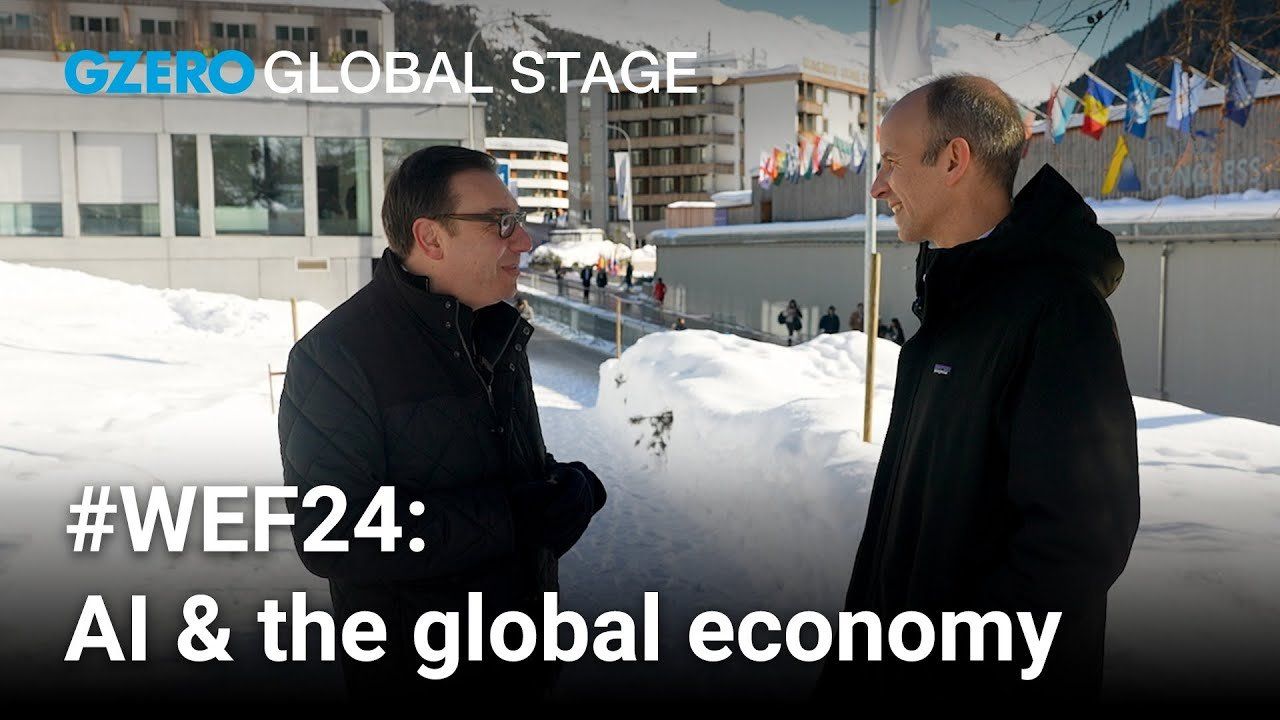Digital Governance
This year's Davos is different because of the AI agenda, says Charter's Kevin Delaney

This year's Davos is different because of the AI agenda, says Charter's Kevin Delaney | Davos 2024

A striking difference between this year’s Davos and previous summits: Everyone is getting serious about real action on AI, says Kevin Delaney, CEO and founder of Charter, a future-of-work media and research company. (Plus, there are no more wild pool parties hosted by the Russian delegation, but that’s a story for another time.)
GZERO’s Tony Maciulis caught up with him on the sidelines of the World Economic Forum’s annual meeting in Davos, Switzerland.
They discuss how the conference has changed over the decades and unpack the topic on every attendee’s agenda: how AI will impact the global economy.
AI is expected to boost global GDP (perhaps even more than expected). But Delaney raises an important question: Will a rising tide lift everyone’s boat, or will the economic gains from generative AI boost the rich and leave the rest behind? “I think it's easy to believe that actually the gains will not be distributed broadly,” he says.
As AI reshapes the workforce, the economic impacts could fuel political consequences. Similar to what we experienced with globalization, there’s a risk “that we have a wave of populace politics that's fueled by genuinely being left out of a lot of the progress there,” says Delaney.
Watch more Global Stage coverage about AI and this year's Davos news here:
People in support of former South Korean President Yoon Suk Yeol rally near Seoul Central District Court in Seoul on Feb. 19, 2026. The court sentenced him to life imprisonment the same day for leading an insurrection with his short-lived declaration of martial law in December 2024.
65: The age of former South Korean President Yoon Suk Yeol, who was sentenced to life in prison on Thursday after being found guilty of plotting an insurrection when he declared martial law in 2024.
In an era when geopolitics can feel overwhelming and remote, sometimes the best messengers are made of felt and foam.
The Hungarian election is off to the races, and nationalist Prime Minister Viktor Orbán is facing his most serious challenger in 16 years.
Does skepticism rule the day in politics? Public opinion data collected as part of the Munich Security Conference’s annual report found that large shares of respondents in G7 and several BRICS countries believed their governments’ policies would leave future generations worse off.